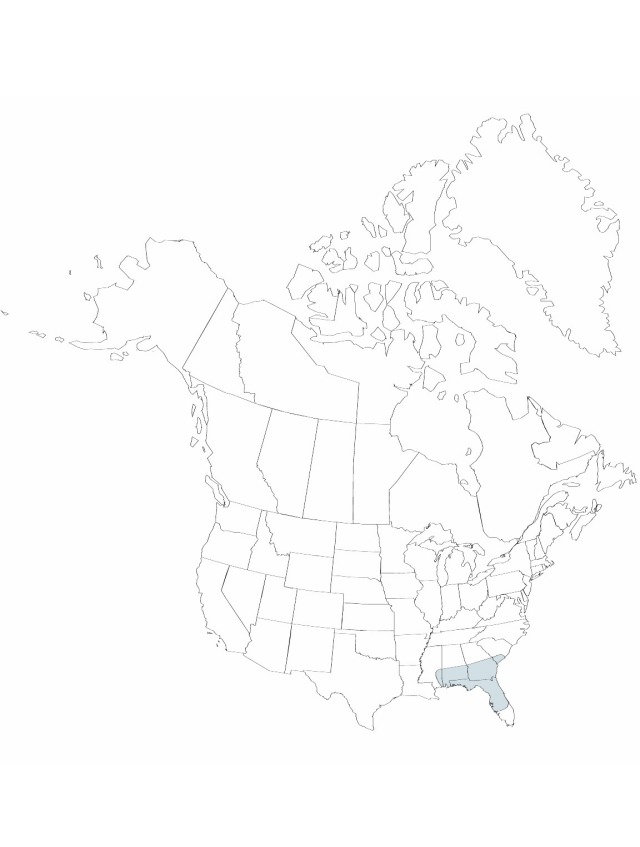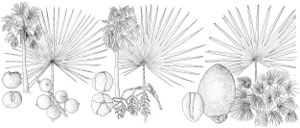Difference between revisions of "Rhapidophyllum hystrix"
Bot. Zeitung (Berlin) 34: 803. 1876.
FNA>Volume Importer |
FNA>Volume Importer |
||
| Line 8: | Line 8: | ||
}} | }} | ||
|common_names=Needle palm;palmier a aiguilles | |common_names=Needle palm;palmier a aiguilles | ||
| − | |basionyms={{Treatment/ID/ | + | |basionyms={{Treatment/ID/Basionym |
|name=Chamaerops hystrix | |name=Chamaerops hystrix | ||
|authority=Pursh | |authority=Pursh | ||
| + | |publication_title=Fl. Amer. Sept. | ||
| + | |publication_place=1: 240. 1814 | ||
}} | }} | ||
|synonyms={{Treatment/ID/Synonym | |synonyms={{Treatment/ID/Synonym | ||
| Line 58: | Line 60: | ||
|publication year=1876 | |publication year=1876 | ||
|special status= | |special status= | ||
| − | |source xml=https://jpend@bitbucket.org/aafc-mbb/fna-data-curation.git/src/ | + | |source xml=https://jpend@bitbucket.org/aafc-mbb/fna-data-curation.git/src/f6b125a955440c0872999024f038d74684f65921/coarse_grained_fna_xml/V22/V22_605.xml |
|subfamily=Arecaceae subfam. Coryphoideae | |subfamily=Arecaceae subfam. Coryphoideae | ||
|tribe=Arecaceae tribe Corypheae | |tribe=Arecaceae tribe Corypheae | ||
Revision as of 19:03, 24 September 2019
Stems erect or procumbent, short, 1–7 dm, caespitose shoots often present. Leaves less than 70 cm wide; leaf sheath bearing stout emergent spinelike fibers, ca. 50 cm. Flowers yellowish. Fruits brown, ellipsoid, length ca. 2 cm, diam. 1.5 cm. 2n = 36.
Phenology: Flowering spring.
Habitat: Rich soil over limestone in shady mesic to wet woodlands, and along banks of ravines and streams
Elevation: 20–100 m
Distribution

Ala., Fla., Ga., Miss., S.C.
Discussion
The palm usually grows prodecumbently with adventitious roots emerging from the trunk where it contacts moist soil (A. G. Shuey and R. P. Wunderlin 1977). In the wild, Rhapidophyllum forms suckers along its stem, and it is thatis vegetative reproduction, more than seedling reproduction, that maintains most populations (K. E. Clancy and M. J. Sullivan 1988).
Flowers are protandrous and most likely to be pollinated by a species of Notolomus (Coleoptera: Curculionidae). The evil-smelling and curiously hirsute fruits are taken by black bears (D. S. Maehr and J. R. Brady 1984) and other mammals (A. G. Shuey and R. P. Wunderlin 1977).
Selected References
None.
